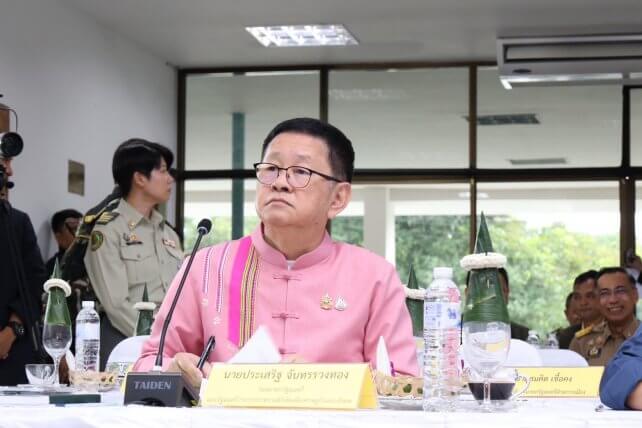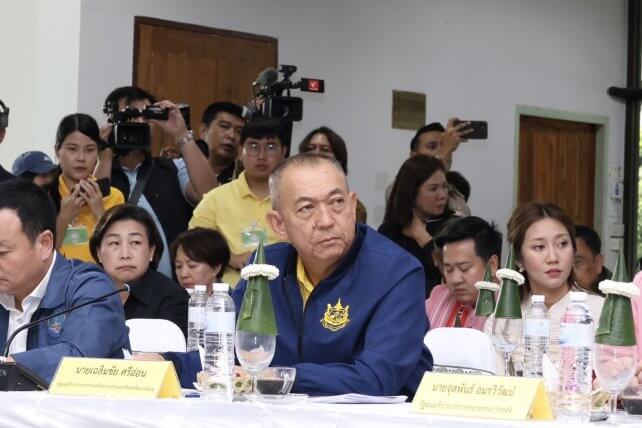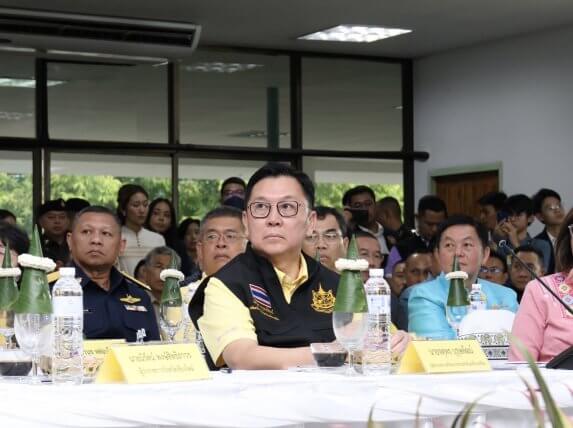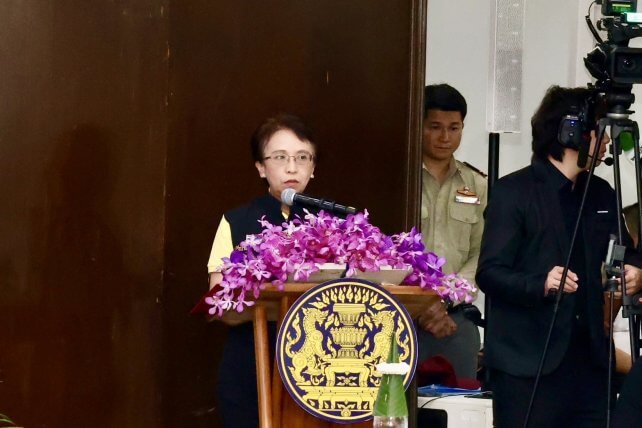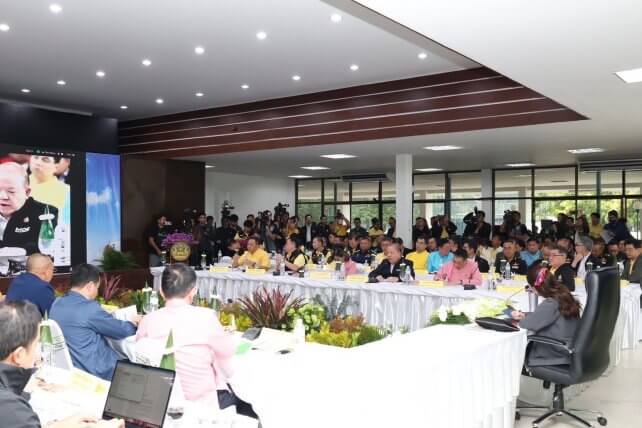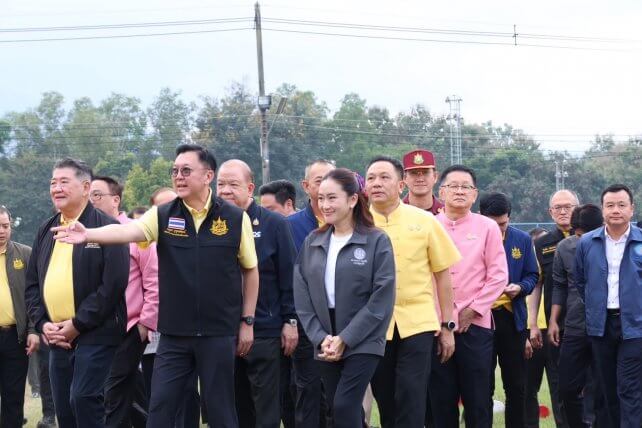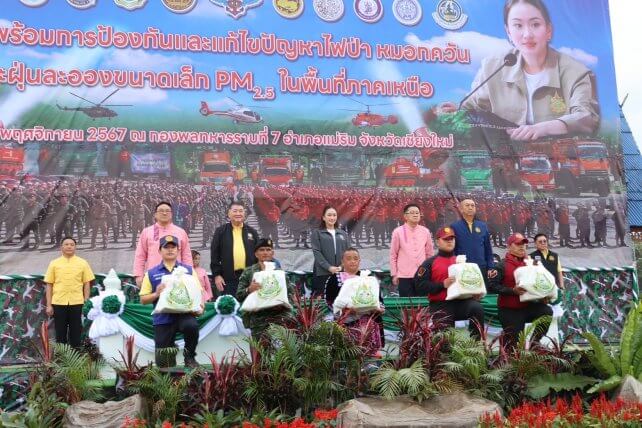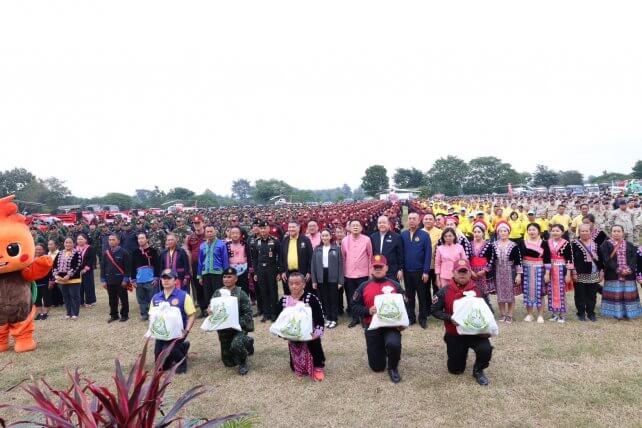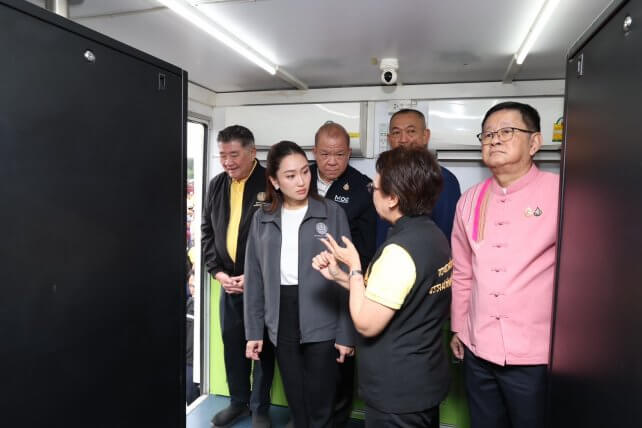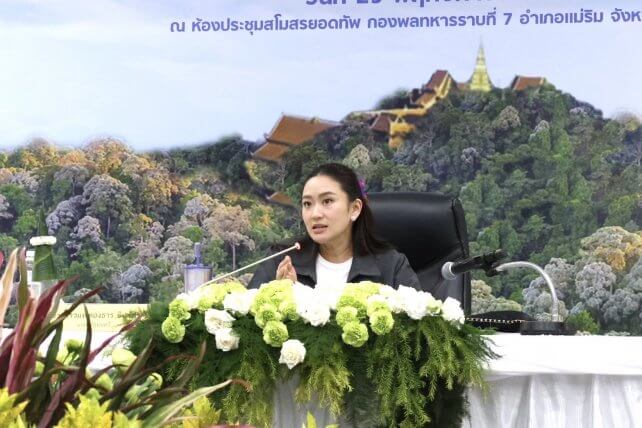
On November 29, 2024, at the Yodtap Club Meeting Room, 7th Infantry Division, Mae Rim District, Chiang Mai Province, Prime Minister (Ms. Paetongtarn Shinawatra) delivered a policy speech and gave instructions to relevant agencies to prepare for the prevention and resolution of forest fires, haze, and PM2.5 for the year 2025. Mr. Prasert Jantararuangtong, Deputy Prime Minister and Chairman of the Air Pollution Management Steering Committee, which was appointed by the Prime Minister, stated the particulate matter situation, which is expected to increase during the winter season due to meteorological factors, and will rise further due to the release of particulate matter from various sources. The main source, accounting for 70%, comes from burning in forest areas, followed by agricultural areas at 24%, and urban areas, which are primarily from diesel vehicles. During this morning Mobile Cabinet Meeting, the government approved measures to address the forest fires, haze, and particulate matter situation for the year 2025.
In the afternoon, relevant agencies reported their preparedness for the prevention and resolution of forest fires, haze, and PM2.5. These included measures such as controlling the importation and refusal to purchase agricultural products from burning, by the Ministry of Commerce; cooperation on transboundary haze pollution under the CLEAR Sky Strategy, by the Ministry of Foreign Affairs; reducing illegal sugarcane burning, by the Ministry of Industry; promoting low-carbon farming practices, by the Ministry of Agriculture and Cooperatives; forest fires operations and control across 14 forest areas, and the provision of personnel, equipment, and tools for forest fires prevention and resolution, by the Ministry of Natural Resources and Environment and the 3rd Army Area; monitoring and public warnings, using technology to detect hot spots from burning, by the Department of Disaster Prevention and Mitigation and the Geo-Informatics and Space Technology Development Agency. The Pollution Control Department reported the current particulate matter situation and future forecasts, which suggest it will not be severe due to the La Niña phenomenon, along with setting targets to reduce hot spots and burned areas, and overseeing and controlling efforts as reported by the various agencies to the Prime Minister.
Prime Minister, Ms. Paethongtarn Shinawatra, stated that PM2.5 is a priority policy of the government, and all agencies must take intensive action. This is because it will be a test of the performance of all agencies. If we are unable to effectively manage the particulate matter problem, it will hinder economic development, tourism promotion, and most importantly, the health and well-being of the people. The Prime Minister emphasized the need for cooperation from all sectors, including the public, private sectors, and collaboration with neighboring countries.
For example, if farmers cooperate, the Ministry of Interior and the Ministry of Agriculture and Cooperatives should consider providing assistance or incentives, and offer education to farmers, particularly on processing and utilizing agricultural by-products to generate income, rather than offering compensation for not burning, which would not be sustainable. In terms of forest fire management, if there is a risk of an outbreak, immediate action must be taken, and officials must be protected from harm.
The Ministry of Foreign Affairs must monitor the cooperation in haze management with neighboring countries and provide regular reports to the Cabinet. The Ministry of Digital Economy and Society should develop technology to warn both citizens and tourists about health protection, as well as establish a hotline for communication between the government and the public.
The Prime Minister expressed her determination to achieve results on this issue, citing last year’s success in reducing hot spots by more than 50%. She is confident that through integration and collaboration across all sectors, this year’s efforts will be even more successful.
After delivering the policy, the Prime Minister, Deputy Prime Minister, Ministers, and senior executives from all relevant agencies visited to inspect the preparedness of equipment and tools, and to encourage the personnel and volunteers who have sacrificed as frontline workers in firefighting efforts.

